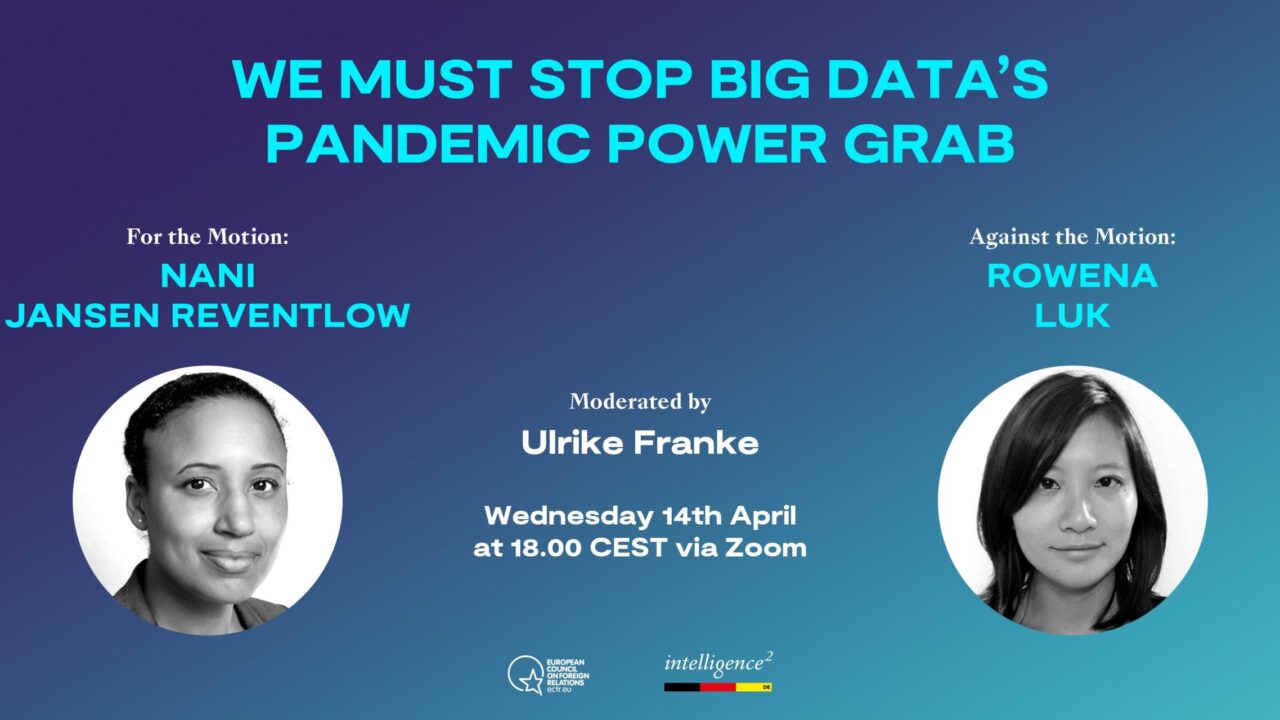ECFR x Intelligence² Germany – Debate: We must stop big data’s pandemic power grab
An Oxford-style debate in cooperation with Intelligence² Germany
Guests
For the motion: Nani Jansen Reventlow, human rights lawyer and founding director of the Digital Freedom Fund
Against the motion: Rowena Luk, digital and global health executive, host of the podcast Aid, Evolved
Chaired by
Ulrike Franke, Senior Policy Fellow, ECFR
The covid-19 pandemic has legitimized digital surveillance at an unprecedented scale. As countries grapple to contain the virus, big data collection has become standard practice, extending far beyond communist China into democracies around the globe – and reaching across our communications, payments, social interactions, movements, and medical histories.
We need to act fast, say digital rights campaigners. With the exploitation of emergency powers, governments have established precedents of data accrual that risk becoming dystopian norms. Aggressive tracking measures have been adopted by decree, with limited legal oversight and no clear time limitations. Tech corporations have leveraged the crisis to push rights-abusing platforms. Key questions about the security, processing, and repurposing of our data remain unanswered, leaving each of us vulnerable to the weaponization of personal information. With scant evidence that the sacrifice of privacy really reaps health rewards, we must push back against this panopticon world, and demand instead governmental accountability, robust on-the-ground infrastructure, proper healthcare systems, and secure supplies of medical resources.
Let’s get real, say big data advocates. Digital tracking and monitoring is the most precise and powerful tool we have to identify where covid-19 is, how it is spreading, and how it is mutating. If we want to get a handle on this pandemic – and any other communicable disease – we need to embrace, rather than resist, data-led measures. Just look at the disarray of covid-19 responses in data-wary Europe, compared to the success of data-led action in Taiwan, Singapore, and South Korea. So, too, can innovative big data help us reach and protect under-resourced countries and the most marginalized communities, make smarter investments, and create healthier, more sustainable living spaces in future. This isn’t about tech corporations, it’s about individual lives – or deaths.
This ECFR debate is part of the Rethink:Europe initiative, supported by Stiftung Mercator and realised in partnership with Intelligence Squared Germany.

